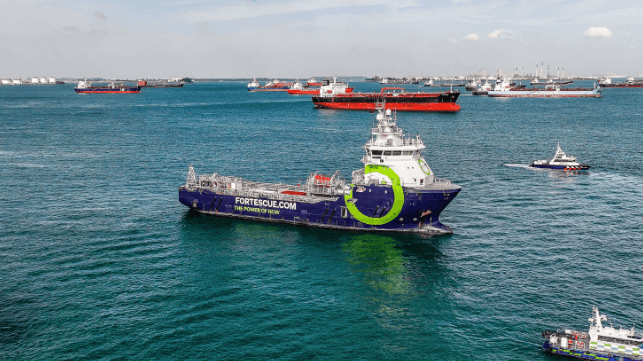Shipping Industry Pushes for Hydrogen-based Alternative Fuels at Lightly-attended COP29
Key Ideas
- Major national leaders absent from COP29, but shipping stakeholders advocate for hydrogen-based alternative fuels and stringent emissions regulations.
- Fortescue, along with key industry players, leads a call for action on a supply chain for green hydrogen, emphasizing the need for a zero emissions fuel standard.
- The call includes proposals for ambitious mandatory measures at MEPC83, including a greenhouse gas intensity fuel standard and a global bunker tax.
- Shift in shipowners' emissions compliance strategies towards LNG over hydrogen-based methanol observed, with Maersk leading the shift with LNG-powered newbuild orders.
This year's global climate conference, COP29, saw a notable absence of major national leaders, raising concerns about the future of climate action. However, the shipping industry made a strong presence with over 50 stakeholders advocating for hydrogen-based alternative fuels. Led by Fortescue, the call for action emphasized the importance of a zero emissions fuel standard and ambitious emissions regulations. The proposed measures include a greenhouse gas intensity fuel standard with penalties for noncompliance, a global bunker tax priced at $100-150 per tonne of CO2 equivalent, and stringent standards for emissions accounting. Fortescue's CEO, Dr. Andrew Forrest, firmly rejected transition fuels like LNG and urged for a zero emissions fuel standard to drive real maritime decarbonization solutions. While some industry giants like Maersk have favored LNG over hydrogen-based methanol recently, the interest in green hydrogen-based fuels remains strong among several key players. The shift in shipowners' emissions compliance strategies towards LNG, as evidenced by the surge in LNG-powered newbuild orders, highlights the evolving landscape of decarbonization efforts in the shipping industry.
